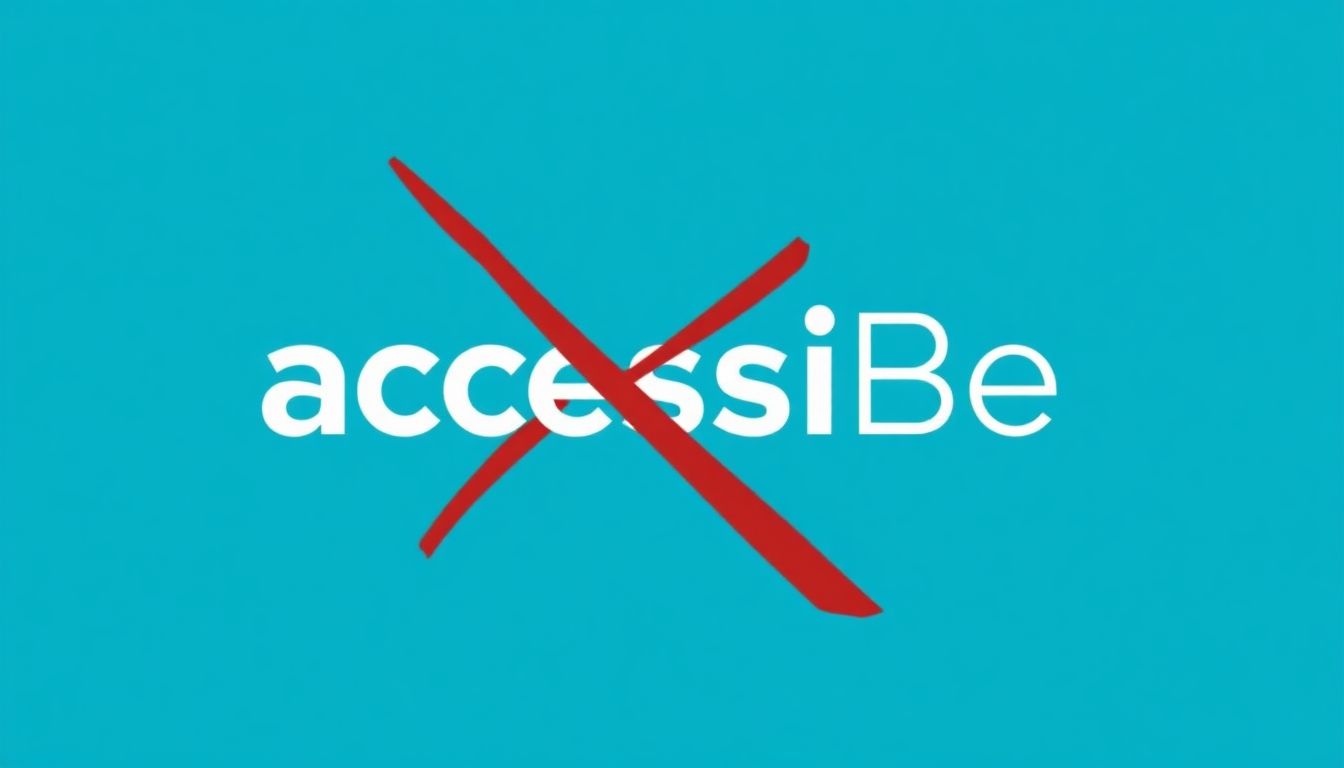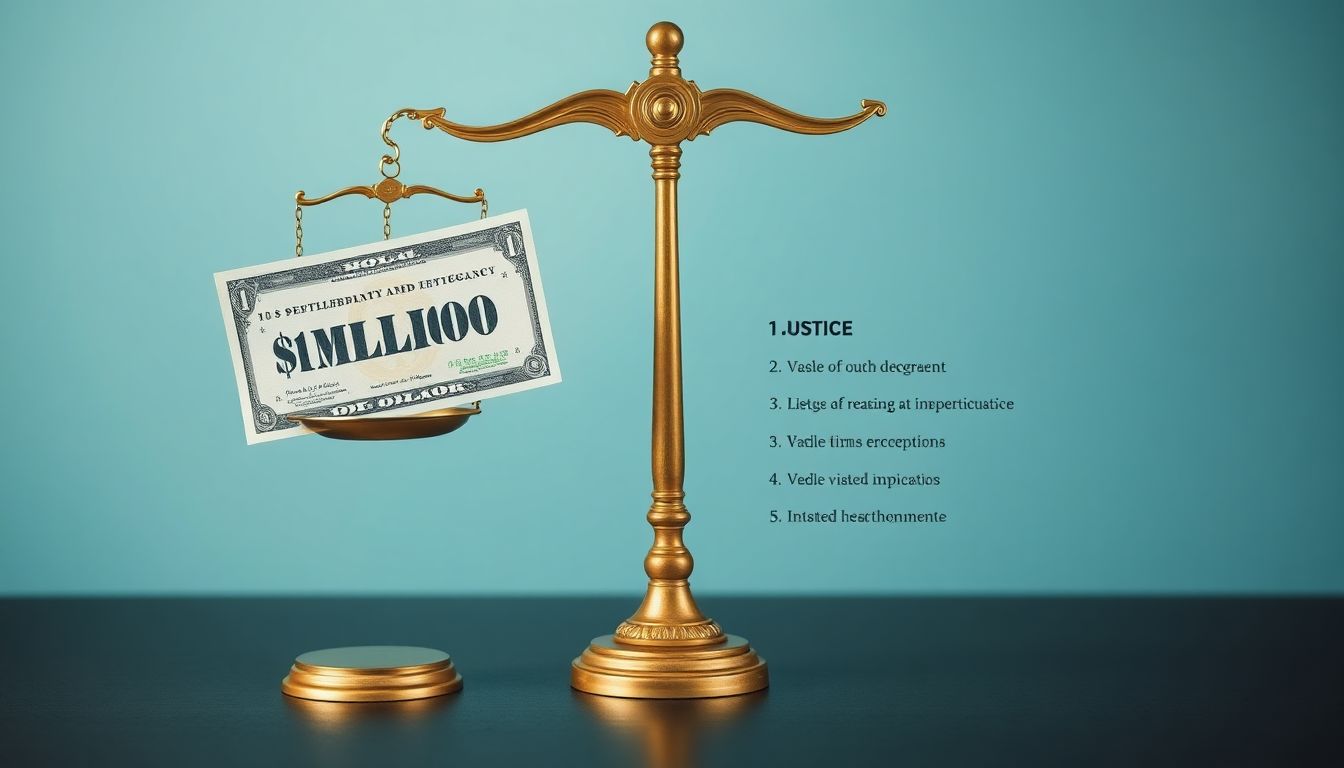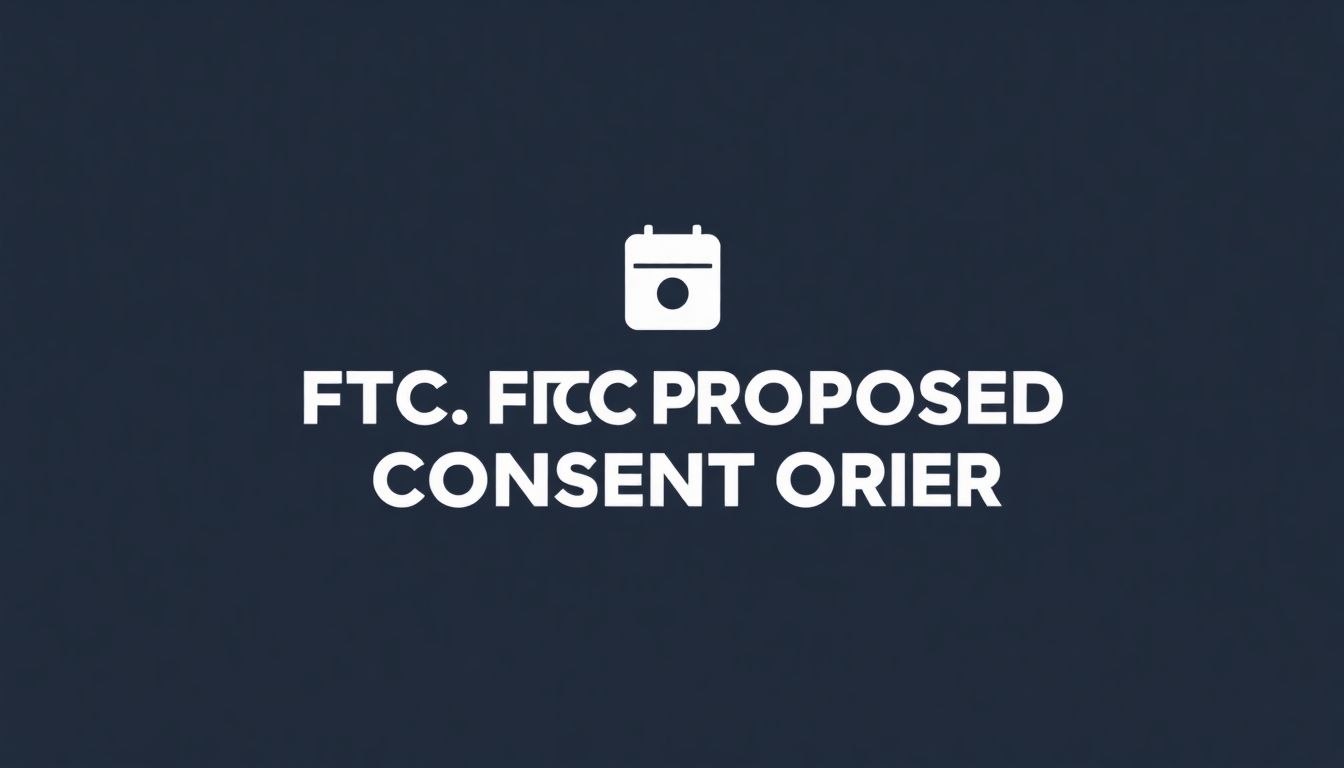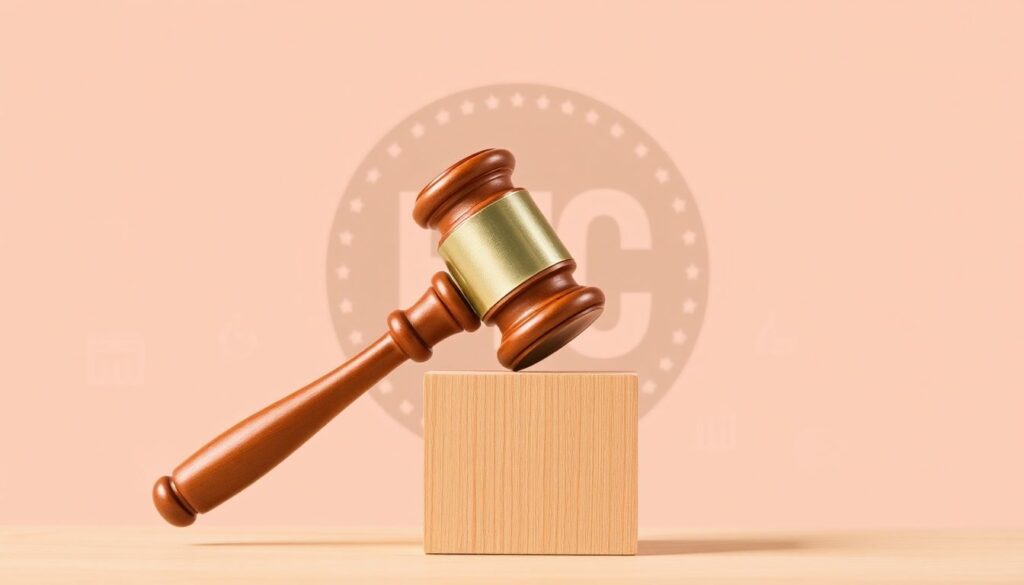In the realm of digital accessibility, ensuring that websites are compliant with the Web Content Accessibility Guidelines (WCAG) is crucial for inclusivity. However, when companies overpromise and underdeliver on their accessibility solutions, it can lead to significant repercussions. The Federal Trade Commission (FTC) recently took action against one such company, highlighting the importance of honest marketing practices in the tech industry.
The Federal Trade Commission takes a stand against misleading advertising in the realm of web accessibility.
Imagine a striking visual that embodies the convergence of law, technology, and accessibility. At the focal point, a gleaming gavel is frozen in motion as it descends onto a wooden block, the iconic emblem of legal authority and judgment. The gavel’s trajectory is set against a backdrop that prominently features the official logo of the Federal Trade Commission (FTC), a symbol of consumer protection and market regulation. This arresting image is not merely a representation of legal force, but a poignant commentary on the FTC’s recent actions against deceptive practices in the realm of artificial intelligence (AI).
Surrounding this central scene are an array of icons that add depth and context to the narrative. AI algorithms, represented by stylized neural networks and futuristic circuit designs, are juxtaposed with website icons, signifying the digital landscape where these technologies often interact with consumers. These elements coalesce to illustrate the pervasive nature of AI in our daily lives, from the websites we browse to the services we use, highlighting the importance of transparency and honesty in how these tools are marketed.
Completing the tableau are accessibility symbols, such as the universally recognized wheelchair icon and other symbols denoting assistive technologies. These icons underscore the critical aspect of the FTC’s intervention: the need for truth in advertising, especially when it comes to claims of AI enhancing accessibility. The image serves as a stark reminder that deceptive practices in this area not only mislead consumers but also potentially harm vulnerable populations who rely on accessibility features for equal access to digital spaces. The visual encapsulates the FTC’s commitment to ensuring that AI’s promise of a more inclusive digital world is genuine and not just an empty marketing ploy.

The Allegations Against accessiBe
The Federal Trade Commission (FTC) has leveled specific allegations against accessiBe, an Israeli-based company known for its AI-powered web accessibility tool, accessWidget. The FTC’s complaint alleges that accessiBe has engaged in deceptive practices by misrepresenting the capabilities and effectiveness of its accessWidget product. The FTC argues that accessiBe claimed its tool could make websites fully compliant with the Americans with Disabilities Act (ADA) and the Web Content Accessibility Guidelines (WCAG). However, the FTC contends that these claims are overstated and misleading, as the tool only addresses a fraction of accessibility issues, leaving many websites still inaccessible to users with disabilities.
One of the key allegations revolves around accessiBe’s marketing tactics. The FTC alleges that accessiBe used deceptive marketing strategies to convince potential customers that accessWidget could provide comprehensive accessibility solutions. The company’s marketing materials, including its website and promotional content, allegedly contained false or unsubstantiated claims about the tool’s abilities. For instance, accessiBe claimed that accessWidget could:
- Automatically remediate accessibility issues without the need for manual intervention
- Provide full compliance with ADA and WCAG standards
- Offer a quick and easy solution for web accessibility
The FTC argues that these claims are misleading because they suggest a level of effectiveness and comprehensiveness that accessWidget does not actually possess.
Furthermore, the FTC’s complaint highlights that accessiBe allegedly exploited customers’ lack of knowledge about web accessibility standards and the complexities involved in achieving full compliance. By presenting accessWidget as a “silver bullet” solution, accessiBe allegedly preyed on businesses’ fears of litigation and desire for a simple fix. The FTC asserts that this approach not only deceives customers but also undermines the broader goal of making the web truly accessible to all users, including those with disabilities. The FTC’s action against accessiBe underscores the importance of transparency and accuracy in marketing, especially when it comes to products aimed at addressing critical issues like web accessibility.

The Settlement and Its Implications
The recent settlement between the Federal Trade Commission (FTC) and tech startup accessiBe has brought to light several notable details. The most striking is the $1 million payment imposed on accessiBe, a significant figure for a startup, underscoring the severity of the allegations. The FTC alleged that accessiBe misled consumers about the accessibility of their clients’ websites, claiming compliance with accessibility standards that were not entirely met. This settlement serves as a stark reminder of the consequences of deceptive advertising, even in the tech industry.
Beyond the monetary penalty, the settlement places stringent restrictions on accessiBe’s future marketing practices. The company is now required to refrain from misrepresenting the extent to which its services can help clients meet accessibility standards. Specifically, accessiBe must:
- Clearly disclose the limitations of its automated tool.
- Provide potential clients with accurate information about the accessibility issues that will remain after using its product.
- Refrain from making unsubstantiated claims about the accessibility of websites using its services.
These restrictions aim to foster transparency and honesty in accessiBe’s advertising, ensuring that consumers and businesses alike are not misled.
The broader implications of this settlement for the tech industry are profound. It sends a clear message that honest advertising is not just an ethical obligation, but a legal one. In an industry often criticized for prioritizing innovation over regulation, this settlement underscores the importance of transparency and accuracy in marketing. Tech companies, particularly those offering services to help businesses comply with regulations, must ensure their advertising is truthful and not misleading. The FTC’s action against accessiBe serves as a wake-up call, reminding tech companies that they are not exempt from advertising standards and must be held accountable for their claims.

The Public Comment Period
The public comment period for the proposed consent order is a critical phase in the regulatory process, during which the general public and interested stakeholders are invited to review and provide feedback on the proposed settlement. This period typically lasts for 30 days, although the duration may vary depending on the specific case and the governing agency’s rules. During this time, the proposed consent order is made publicly available, often through the agency’s website or official publications. The purpose of this period is to promote transparency, ensure fairness, and gather diverse perspectives that could potentially influence the final decision.
Submitting comments during this period is a straightforward process, with multiple channels available to facilitate public engagement. Typically, comments can be submitted through the following methods:
- Via the agency’s designated online portal or website
- Through email to a specified address
- By traditional mail sent to the agency’s physical address
- In person, at public hearings or meetings, if scheduled
It is essential to include the specific docket or reference number associated with the proposed consent order to ensure that the comment is properly considered.
The potential outcomes of the public comment period are varied and can significantly impact the proposed consent order. Based on the feedback received, the following scenarios may unfold:
- If the comments are largely supportive, the proposed consent order may be finalized without significant changes
- If substantial criticisms or concerns are raised, the agency may:
- Revise the proposed consent order to address these issues
- Request further information from the parties involved
- Hold additional hearings or extend the comment period for further deliberation
- In rare cases, withdraw the proposed consent order entirely
- If new evidence or legal arguments are presented, the agency may need to reassess its position and make appropriate adjustments
Ultimately, the public comment period serves as a vital mechanism for ensuring that the consent order process is fair, well-informed, and responsive to the needs and concerns of the public and other stakeholders.
FAQ
What is the Web Content Accessibility Guidelines (WCAG)?
What were the main allegations against accessiBe?
- Misrepresenting the ability of its AI-powered tool, accessWidget, to make any website WCAG-compliant.
- Using deceptive marketing tactics, such as formatting third-party articles and reviews to appear as if they were independent opinions by impartial authors.
- Failing to disclose the company’s material connections to the supposedly objective reviewers.
What are the key provisions of the proposed order?
- Prohibiting accessiBe from making unsubstantiated claims about the capabilities of its automated products.
- Requiring accessiBe to disclose any unexpected material connections that endorsers have to the company’s automated products.
- Requiring accessiBe to pay the FTC $1 million, which may be used to provide refunds to consumers.
